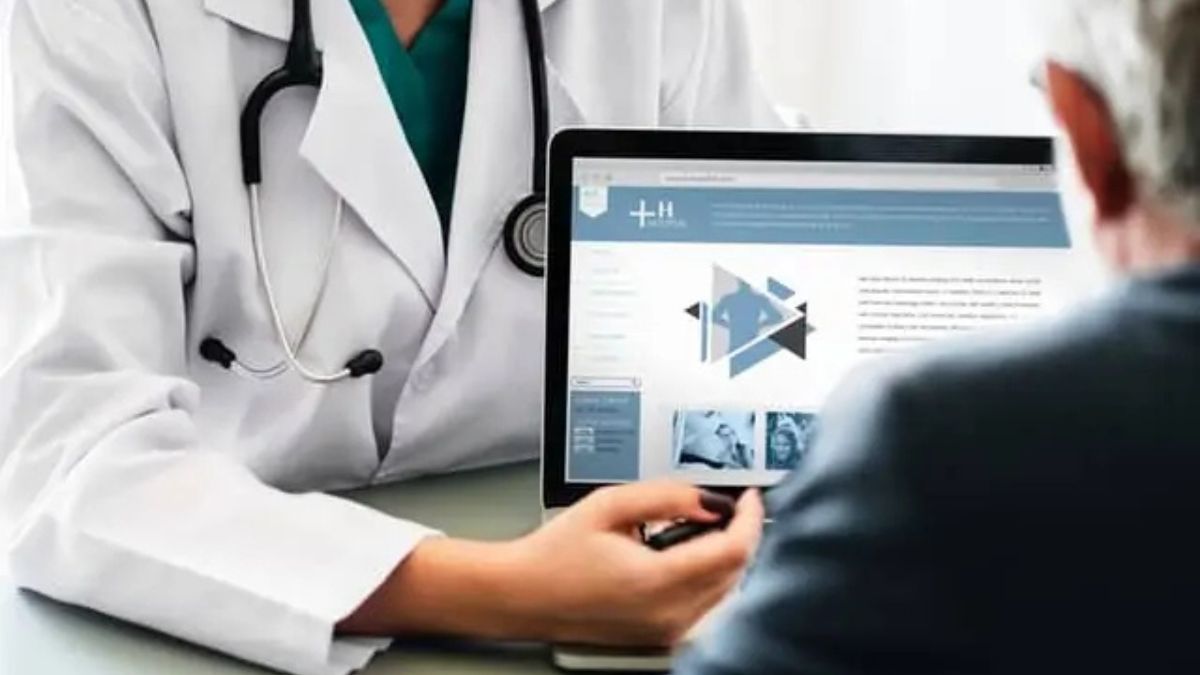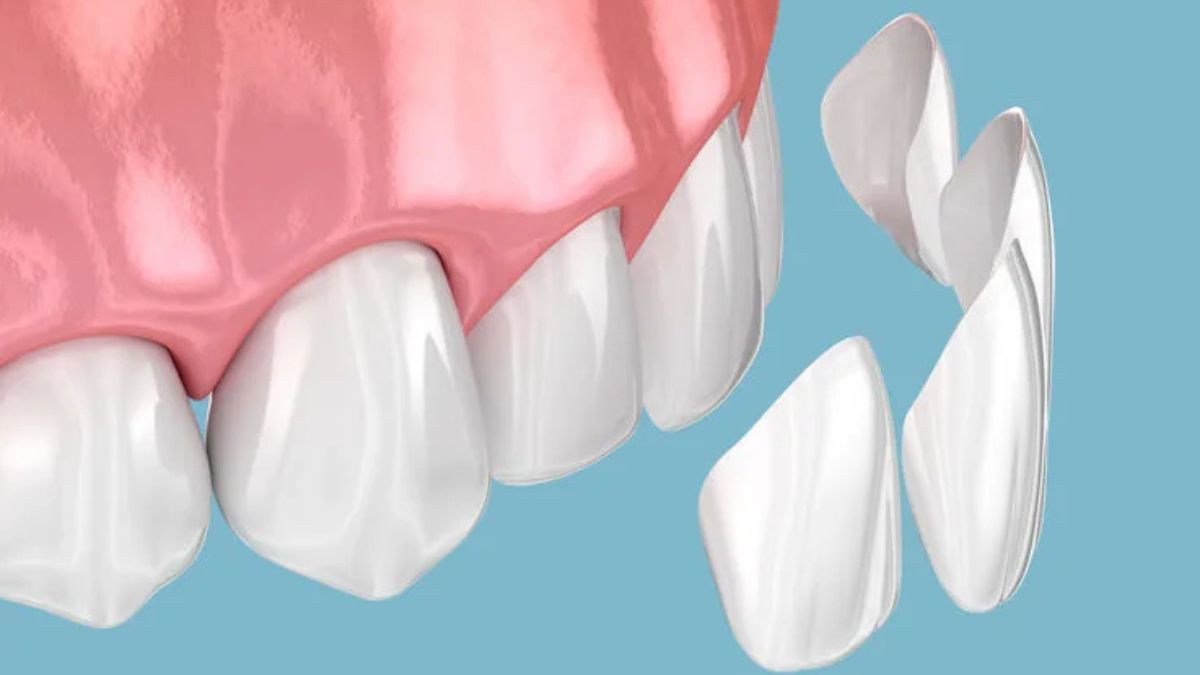HEALTH
Hospital Management App Features: Enhancing Efficiency in Healthcare

In the digital age, healthcare providers are increasingly turning to mobile apps to streamline hospital management and enhance patient care. A hospital management app is a comprehensive solution that integrates various hospital functions into a single platform, improving efficiency, reducing errors, and providing a better experience for patients and healthcare professionals alike. Below, we discuss essential features of hospital management apps, why they are essential, and how a Healthcare App Development Company can help bring your vision to life. If you’re looking to create a high-quality app, consider finding an Android app developer for hire with experience in healthcare solutions.
Why Hospital Management Apps Are Essential?
Hospital management is complex, involving coordination among doctors, nurses, administrative staff, and patients. Managing these elements manually can lead to delays, data inaccuracies, and increased workload on staff. A hospital management app automates and centralizes these processes, making it easier to manage appointments, billing, patient records, and more. Here are a few reasons hospitals are adopting these apps:
- Enhanced Patient Experience: With better appointment scheduling and streamlined communications, patients experience reduced waiting times and improved satisfaction.
- Improved Staff Productivity: Automation of administrative tasks reduces staff workload, allowing them to focus on patient care.
- Data Accuracy and Security: Digital records are more accurate and less susceptible to errors. Moreover, data encryption can safeguard patient information.
- Operational Efficiency: Apps enable seamless inter-departmental communication, helping healthcare providers offer a more coordinated approach to patient care.
Key Features of a Hospital Management App
When building a hospital management app, it’s essential to include features that address the needs of patients, healthcare providers, and administrative staff. Here are some must-have features:
1. Appointment Scheduling and Management
A scheduling feature enables patients to book appointments with their healthcare providers through the app, reducing the workload on reception staff and allowing patients to choose available time slots that fit their schedules. Integration with a calendar system can help staff manage and organize appointments effectively.
- Benefits: Reduces waiting time, increases efficiency, and improves patient satisfaction.
- Customization: Appointment scheduling can be tailored based on the doctor’s availability and the patient’s history.
2. Electronic Health Records (EHR) Management
EHRs are crucial for maintaining a digital repository of patient health information. With EHR management, healthcare providers can access patient records instantly, including lab results, prescriptions, past diagnoses, and treatment plans.
- Security: Encrypt sensitive data to ensure privacy and compliance with healthcare regulations.
- Access Control: Only authorized personnel should be able to access specific patient information.
3. Billing and Invoice Management
Managing billing is complex in healthcare, especially with insurance claims and payments. An automated billing system in the app can generate invoices, process payments, and manage insurance claims efficiently.
- Integration: Payment gateways can be integrated to accept various payment methods.
- Automation: Automates repetitive tasks, reducing the risk of billing errors and ensuring faster payment processing.
4. Patient Registration and Profile Management
This feature allows new patients to register themselves by providing necessary information, like contact details, insurance information, and medical history. This data is securely stored in the app for easy access by medical staff.
- Efficiency: Eliminates paperwork and manual data entry, streamlining the onboarding process.
- Personalization: Enables doctors to access each patient’s unique medical history for personalized care.
5. Telemedicine and Video Consultation
Telemedicine has become vital in today’s healthcare landscape, providing remote consultations to patients who may not be able to visit in person. This feature allows patients to consult with doctors through secure video calls directly in the app.
- Accessibility: Ensures patients in remote locations can access healthcare services.
- Convenience: Reduces patient flow in hospitals, minimizing the risk of infectious disease spread.
6. Prescription Management and E-Prescriptions
Prescription management enables doctors to provide e-prescriptions directly to the patient’s profile in the app. It also allows pharmacists to access these prescriptions, reducing errors and ensuring that patients receive the correct medications.
- Accuracy: Minimizes medication errors due to illegible handwriting or verbal misunderstandings.
- Convenience: Patients can conveniently access their prescriptions through the app at any time.
7. Lab Test Booking and Result Tracking
Patients can use the app to book lab tests at their convenience and track test results. Results can be accessed by doctors to facilitate faster diagnosis and treatment plans.
- Integration: Integrate with lab systems to fetch test results automatically.
- Updates: Notify patients and healthcare providers when results are available.
8. Inventory and Resource Management
Inventory management helps hospitals keep track of supplies, medicines, and equipment, ensuring that they are always adequately stocked. This feature also helps in forecasting demand and avoiding shortages.
- Automation: Set alerts for restocking and expiration dates to minimize waste.
- Tracking: Allows monitoring of resource usage to ensure availability during emergencies.
9. Staff Management
A staff management module can help hospitals allocate duties, track attendance, and monitor shift schedules. It ensures that the hospital has adequate staff available to provide patient care, especially during peak hours.
- Efficiency: Reduces the administrative burden of managing staff schedules.
- Accountability: Tracks individual performance metrics for staff.
10. Patient Feedback and Review System
This feature allows patients to provide feedback about their experience, which is invaluable for hospitals looking to improve their services. Positive reviews can also help attract more patients.
- Engagement: Increases patient engagement by valuing their feedback.
- Continuous Improvement: Helps hospitals identify areas for improvement.
11. Emergency Response Management
An emergency response feature can help prioritize urgent cases and notify relevant departments instantly. It can also allow patients to alert the hospital in case of an emergency.
- Integration: Integrate with ambulance dispatch and emergency room management.
- Response Time: Improves response time and patient outcomes in emergencies.
Benefits of a Hospital Management App
Improved Patient Care
An app centralizes and organizes patient data, which can be accessed instantly by healthcare providers. With better data availability, healthcare providers can make more informed decisions, enhancing the quality of care.
Enhanced Efficiency and Reduced Operational Costs
Automating administrative tasks such as billing, scheduling, and resource management reduces staff workload, minimizing operational costs and errors associated with manual data entry.
Data Security and Compliance
A well-designed hospital management app ensures data security and compliance with regulations like HIPAA. Working with a Healthcare App Development Company ensures that your app is built with secure encryption methods to protect sensitive patient information.
Seamless Communication
Effective communication between departments and healthcare providers is essential for coordinated patient care. A hospital management app enables real-time updates and instant notifications, ensuring all departments stay connected.
Choosing the Right Development Partner
Developing a hospital management app requires expertise in both healthcare and technology. Partnering with a Healthcare App Development Company with experience in building healthcare solutions can ensure that your app meets regulatory standards and functions seamlessly.
If you’re specifically looking to build an Android solution, you might consider hiring an Android app developer for hire with expertise in hospital management and healthcare applications. A professional developer will ensure your app is robust, user-friendly, and capable of integrating with other systems.
Final Thoughts
Incorporating these features into a hospital management app can transform healthcare delivery, making it more efficient, patient-centered, and secure. With the right development partner and a well-thought-out feature set, hospitals can offer patients and staff an enhanced digital experience that aligns with modern healthcare needs.
When choosing a Healthcare App Development Company or an Android app developer for hire, prioritize those with proven experience in the healthcare sector. This way, your hospital management app will be equipped with industry-specific insights, ensuring compliance, data security, and usability.
This outline provides a solid foundation for an informative, keyword-rich blog on hospital management app features, tailored to engage and inform healthcare professionals and administrators considering digital transformation.
HEALTH
When the Kids Live Far Away and the Worry Runs Deep

Living miles away from aging parents creates a type of worry that is hard to explain. You might call often, send groceries, or book flights when you can, yet still feel that heavy sense of falling short. Late at night, you may wonder if your mom remembered her medication or whether your dad made it safely out of the shower. This feeling is more common than most people talk about and it carries real emotional weight.
Life naturally pulls us in different directions. Jobs, families, and opportunities lead us to plant roots in new cities or even different states. That does not mean your concern fades. It just means your care might need a helping hand. This is where in home caregivers in Illinois at Ace Home Care become part of the solution, bringing compassionate support when you cannot be there in person.
Long-Distance Caregiving Is an Emotional Balancing Act
Even if you are doing your best from afar, there may be times when it feels like too little. Visits reveal changes that catch you off guard, or neighbors mention concerns you had not heard. The guilt grows heavier when you think about the small moments your parent may be missing out on—warm meals, safe routines, or simple companionship. These emotions are valid and worth acknowledging.
What many families discover is that accepting support is not the same as stepping back. It is actually a form of protection—for your loved one and for yourself. Partnering with a care team you trust brings peace of mind and allows your parent to receive hands-on help while you remain their emotional constant.
Support That Adapts to Your Family’s Needs
Home care does not have to start as a major commitment. Many families begin with just a few hours each week to handle light chores, check in on routines, and provide friendly interaction. These moments help build trust and consistency for your parent, especially if they have been doing everything alone for a long time. It is not about replacing your presence—it is about expanding your reach.
Families in Illinois often turn to Ace Home Health Services for their reputation in compassionate and flexible care. Whether your loved one needs help with meals, errands, or a reassuring voice throughout the week, the care plans are customized to meet real daily needs. The caregivers are not just trained professionals—they are thoughtful companions who treat your family with care and dignity.
When Your Parent Says “I’m Fine” but You Know Something Has Changed
It is hard to hear a parent say they are okay when your instincts tell you something is off. They may downplay the laundry piling up or skip meals without mentioning it. Pride and the desire to stay independent can lead them to brush off signs of struggle. That is where listening closely and acting gently becomes important.
Introducing support does not have to feel like a confrontation. It can be framed as a small step forward, starting with tasks that feel manageable and non-intrusive. Ace Home Care specializes in creating a welcoming environment for seniors who may feel hesitant about help. The focus is always on preserving dignity while making daily life a little easier.
Staying Involved, Even from Miles Away
You do not have to be in the same zip code to stay connected to your parent’s care. With the right care team, you will receive regular updates, check-ins, and feedback about how things are going. Technology and good communication can keep you informed and involved every step of the way.
This is where working with an experienced agency like Ace Home Care makes a real difference. Their transparency and compassion help bridge the gap between your concern and your parent’s needs. You are not stepping away from responsibility—you are sharing it with people who truly care.
Knowing When It Is Time to Ask for Help
Recognizing that your loved one needs more support can be difficult, especially when you are not there to witness it daily. These signs can help you assess when to consider home care:
- Frequent missed medications or doctor appointments
- The home appears unkempt or neglected
- You feel constant worry about their safety or routine
- They start withdrawing from social interactions or seem unusually quiet
These changes signal that extra support could be beneficial. Trusting professionals to step in is not about giving up. It is about showing up in a way that makes sense for your family’s reality.
You Are Still Their Anchor
Being far away does not change your role. You are still the person they look to for support, reassurance, and love. Choosing to bring in home caregivers simply strengthens that role by giving it structure and consistency.
With the right care partner, you will gain peace of mind knowing your parent is safe, seen, and supported. It means your time together can focus more on connection than on worry. That shift makes all the difference.
Ready for the Next Step? Let’s Talk
Long-distance caregiving can bring a mix of emotions—guilt, stress, love, and deep responsibility. You do not have to carry it alone. Ace Home Health Services is here to help you find clarity, create a plan, and support your loved one with respect and compassion.
If you have been wondering whether now is the right time to explore in-home care, we are here to listen. One conversation can lead to relief and reassurance. Let’s talk about what your family needs and how we can provide support that honors both your parent’s dignity and your peace of mind.
HEALTH
Advanced Urology Products: Enhancing Patient Care and Comfort

In the realm of healthcare, urological health is a critical aspect that demands attention and utmost care. Urological disorders can be deeply impacting, affecting not only the physiological well-being of individuals but also their psychological comfort and quality of life. It is essential to utilise advanced medical products and technologies to ensure that patients suffering from such ailments receive the best care possible.
The Importance of High-Quality Urology Products
Managing urological conditions often requires long-term treatment and the use of specialised urology products. These products are designed to support various therapeutic procedures, incontinence care, and surgery recovery processes. More than just facilitating medical interventions, high-quality urology products can significantly enhance patient comfort and support overall well-being.
The advancements in urological care have led to the development of products that cater to personalised needs, ensuring that a patient’s individual medical conditions are addressed with precision. These products range from catheters, drainage bags, and urological stents, to sophisticated monitoring systems and surgical instruments. Each innovation is aimed at improving the caregiving process and patient outcomes.
Innovative Features in Urology Products
Modern urology products come equipped with innovative features designed to minimise discomfort and prevent complications. For example, catheters now boast advanced coatings that reduce friction and the risk of infection. Moreover, the design variations ensure that patients of all ages and anatomies can find a comfortable, secure fit.
Furthermore, contemporary drainage bags are designed with anti-reflux valves that prevent urine backflow, which can be a significant cause of urinary tract infections (UTIs). These features underscore the meticulous attention to detail in product design focused on patient safety and comfort.
Impact on Patient Care
The use of these advanced products in the field of urology has revolutionised patient care. They have enabled healthcare professionals to provide more accurate diagnostics and effective treatment plans. The physical and emotional strain on patients is substantially lessened by products that offer greater mobility and autonomy, especially for those dealing with chronic conditions that impair daily functioning.
With constant innovation in urological technology, there is a continuous stream of more user-friendly, less invasive products entering the market. This advances the goal of delivering healthcare that is not just about treating conditions but improving the overall patient experience.
Choosing the Right Urology Products
When it comes to selecting the appropriate urology products, healthcare providers must consider a myriad of factors. These include the patient’s medical history, lifestyle, and the specific urological condition being treated. The objective is to match the patient with urology products that not only address their medical needs but also provide comfort and ease of use.
It is also crucial that these products meet stringent safety and quality standards. Products should be sourced from reputable manufacturers that comply with health regulations to ensure that patients are receiving the best care possible without any added risks.
Education and Support for Patients and Caregivers
Beyond the physical aspects of the products themselves, providing education and support to patients and their caregivers is paramount. Understanding how to use urology products correctly can prevent complications and enhance the effectiveness of treatments. Healthcare professionals play a vital role in offering guidance and resources to ensure that urology products are being used to their full potential.
Future of Urological Health Products
The future of urological health products is promising, with ongoing research and development paving the way for increasingly innovative solutions. Novel materials and technologies are being explored to further improve the functionality and comfort of urology products. Additionally, the integration of smart technology and data analytics holds the potential to revolutionise urological care, offering new insights into patient health and personalised treatment approaches.
In this evolving landscape, staying abreast of the latest developments is vital for healthcare providers. By leveraging these advancements, they can continue to enhance patient care and outcomes in the field of urology.
Conclusion
Urological health is a complex and sensitive area that necessitates the use of advanced urology products. With the right products, patient care in the realm of urology can reach new heights of effectiveness and comfort. As the field continues to grow and evolve, the focus on innovative product development will remain crucial in the pursuit of providing exemplary care to patients with urological conditions. Healthcare providers, patients, and caregivers alike must embrace these advancements and understand their pivotal role in improving urological healthcare.
Whether it’s through the adoption of new technologies or the provision of comprehensive education and support for product use, the goal is clear: to offer a standard of care that is truly patient-centred. The future holds great promise for the field of urology, and through collaborative efforts among researchers, medical providers, and industry players, patient care will continue to advance, ensuring better health and quality of life for those affected by urological conditions.
HEALTH
Advancements in Dental Composites: Elevating Restorative Dentistry

The field of restorative dentistry has witnessed remarkable progress over the decades, particularly in the area of dental restoration materials. Among the various materials available to dental professionals, dental composites have risen in prominence due to their aesthetic appeal and improved functional properties. This article delves into the evolution of dental composites and how current advancements are reshaping restorative dentistry.
The Evolution of Dental Composites
Dental composites were introduced in the 1960s as an alternative to amalgam fillings and have since undergone significant development. Early composites faced issues such as wear resistance and limited longevity; however, advancements in technology have led to the formulation of composites that rival the durability and appearance of natural teeth.
Innovations in Composite Chemistry
Modern dental composites comprise a matrix of resin filled with a blend of glass or ceramic particles, which has been engineered to enhance their physical properties. Innovations in composite chemistry have focused on improving the material’s mechanical strength, reducing shrinkage during curing, and enhancing polishability and colour stability.
Improved Aesthetic Outcomes
Patients now demand restorations that not only function properly but also look indistinguishable from natural teeth. To meet these aesthetic requirements, dental composites have incorporated a variety of shades and translucencies. By mimicking the layered structure of natural teeth, contemporary composites offer highly aesthetic results that blend seamlessly with the surrounding dentition.
Enhanced Physical Properties
Advances in filler technology have significantly boosted the physical properties of composites. The incorporation of nano-sized fillers has resulted in materials that exhibit superior wear resistance and increased surface smoothness. These improvements have extended the longevity of composite restorations and reduced the occurrence of surface staining.
Advancements in Curing Technologies
The curing process, which hardens the composite material within the cavity, is crucial for the success of the restoration. Developments in light-curing units delivering specific wavelengths and intensities have led to composites with fewer polymerisation defects, meaning fewer post-operative sensitivities and a higher success rate.
Adhesive Systems and Bonding Techniques
The bond between the composite material and tooth structure is fundamental for the stability of the restoration. Advancements in adhesive systems and bonding techniques have enabled stronger adhesion, reducing the likelihood of microleakage, secondary caries, and restoration failure.
Minimally Invasive Approaches
The paradigm shift towards minimally invasive dentistry has been supported by the improved adhesive characteristics of dental composites. This approach preserves more of the natural tooth structure during preparation, enhancing the long-term prognosis of the tooth.
Bulk-Fill Composites
Traditional layering techniques for composite restorations are time-consuming and technique-sensitive. Bulk-fill composites, a recent innovation, have simplified the placement process by enabling the curing of thicker layers in one go, thus reducing chair time and the potential for human error during placement.
Addressing Posterior Challenges
Posterior composite restorations present unique challenges due to the high occlusal forces experienced in molar and premolar teeth. Advances in dental composites have led to the development of materials specifically designed to withstand these forces, providing a durable solution for posterior restorations.
Environmental Considerations
As environmental concerns become more prominent, the dental industry is also looking at the footprint of dental materials. Newer dental composites aim to be more ecologically compatible, focusing on reducing the production of waste and ensuring safe disposal practices.
Continuing Education and Training
The intricacies of working with advanced dental composites demand thorough training and education for dental professionals. This ensures that dentists stay abreast of the latest techniques and materials, optimising the patient outcomes of composite restorations.
The Future of Dental Composites
The future of dental composites appears promising, with research focused on further enhancing their properties. Areas such as reducing polymerisation stress, improving the self-repair capabilities of composites, and incorporating antimicrobial agents are active fields of study that aim to further elevate the capabilities of these materials.
Conclusion
The remarkable advancements in dental composites have significantly influenced restorative dentistry. They represent a union of art and science, providing natural aesthetics, enduring functionality, and supporting conservative treatment principles. As research and technology continue to evolve, dental composites are set to raise the bar even higher, ensuring optimal dental health and patient satisfaction for years to come.
-

 TECHNOLOGY1 day ago
TECHNOLOGY1 day agoTop 10 Must-Read Stories from Kristen Archives You Can’t Miss
-

 TECHNOLOGY6 months ago
TECHNOLOGY6 months agoSky Bri Net Worth Revealed: How She Built Her Financial Empire
-

 TOPIC8 months ago
TOPIC8 months agoBasement Renovation Contractors: How They Tackle Structural Issues During Renovations
-

 TOPIC2 months ago
TOPIC2 months ago5 Reasons the //Vital-Mag.Net Blog Dominates Lifestyle
-

 TOPIC4 weeks ago
TOPIC4 weeks agoTop 10 Articles from the ://Vital-Mag.net Blog That You Can’t Miss
-

 CRYPTO4 months ago
CRYPTO4 months agoCrypto30x.com Review: Is It the Right Platform for You?
-

 BUSINESS4 days ago
BUSINESS4 days agoTraceLoans Explained What You Need to Know
-

 BUSINESS2 weeks ago
BUSINESS2 weeks agoDecoding the Kennedy Funding Ripoff Report: Facts vs. Fiction
